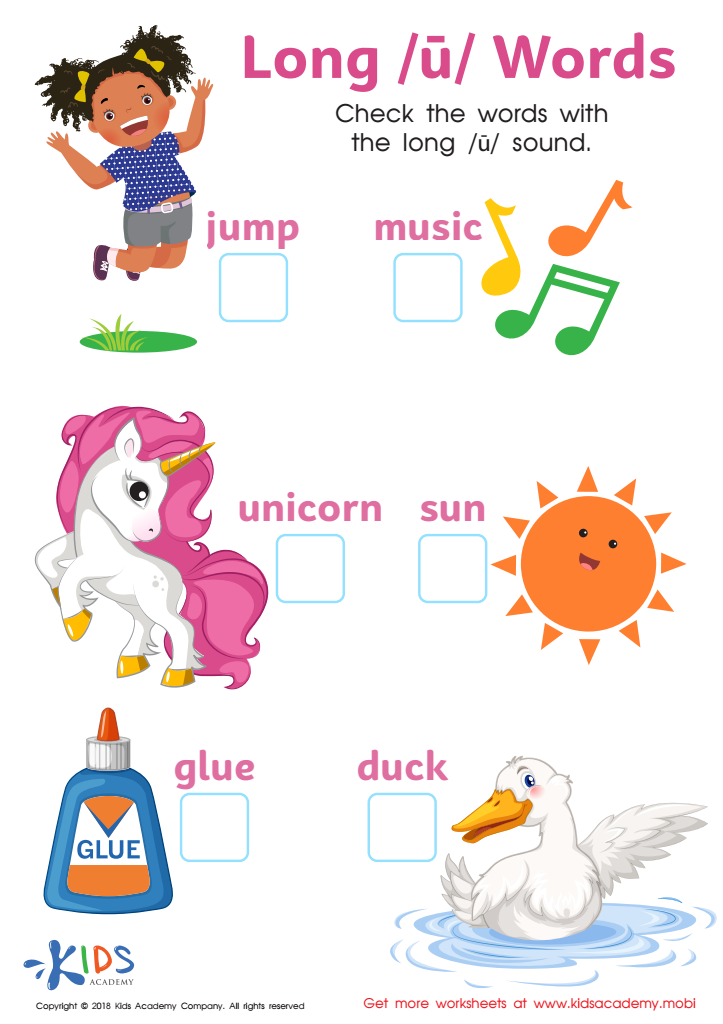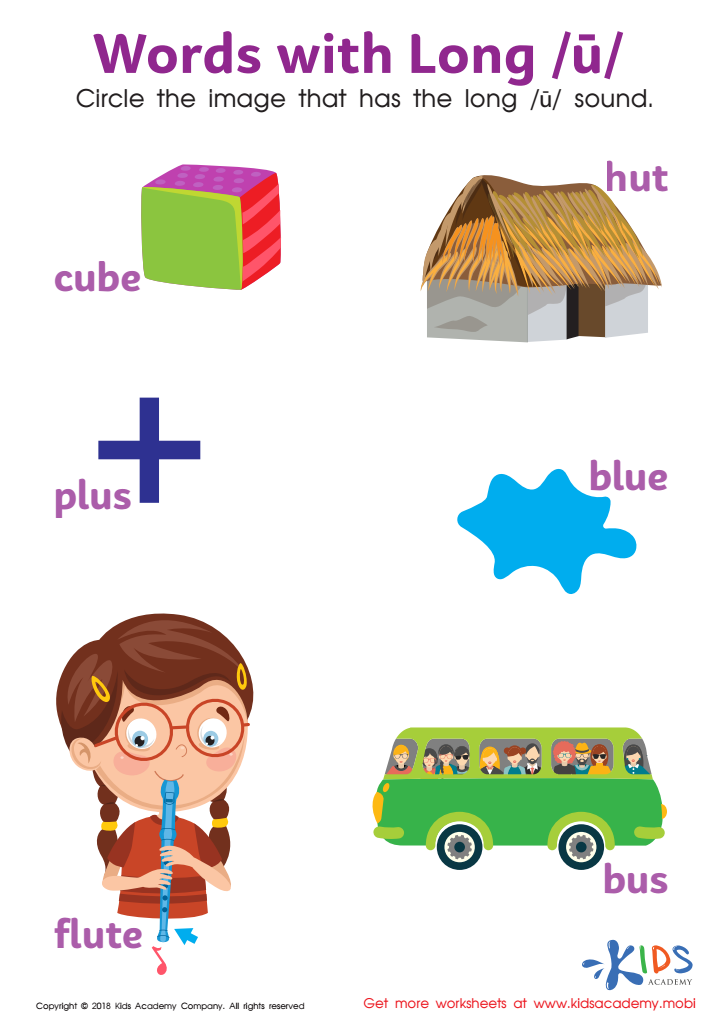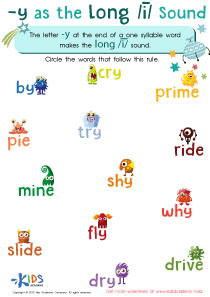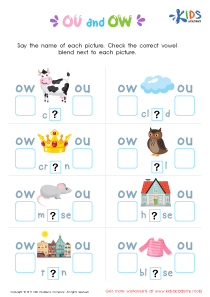Vocabulary expansion Normal Long Vowels Worksheets for Ages 4-6
3 filtered results
-
From - To
Enhance your child’s vocabulary with our "Vocabulary Expansion Normal Long Vowels Worksheets for Ages 4-6." Tailored to young learners, these engaging worksheets focus on teaching long vowel sounds in a fun and interactive way. Each activity is designed to help children recognize, understand, and use long vowel words in different contexts, aiding both reading and writing skills. By incorporating colorful images and relatable scenarios, our worksheets make learning feel like a game. Perfect for parents and educators looking to give kids a head start in language arts. Get ready to see your child’s confidence soar with every completed sheet!


Long U Words Reading Worksheet


Words with Long U Reading Worksheet


Long and Short U Worksheet
Vocabulary expansion and the understanding of normal long vowels for children aged 4-6 are crucial elements in early language development that parents and teachers should focus on for several reasons:
Firstly, vocabulary growth is foundational for literacy. A robust vocabulary allows children to develop better reading comprehension skills because they are able to recognize and make sense of more words. As reading proficiency forms the basis for learning in all subjects, a good vocabulary boosts overall academic performance.
Secondly, knowledge of long vowels contributes significantly to phonemic awareness, which is a key component of phonics instruction. When children understand how vowels can make different sounds, they can better decode new words, aiding in both reading and spelling.
Furthermore, vocabulary and language skills impact social and communication abilities. When children have a rich vocabulary, they can express their thoughts, needs, and emotions more effectively. This enhances their interactions with peers and adults, fostering social development.
Lastly, the ages of 4-6 represent a critical period known as the "language explosion," where children are exceptionally receptive to learning new words and sounds. Ignoring this window can result in missed opportunities for maximizing language and cognitive development.
Investing in vocabulary expansion and long vowel knowledge at this stage sets a strong linguistic foundation, supporting lifelong learning and successful communication.
 Assign to My Students
Assign to My Students
















